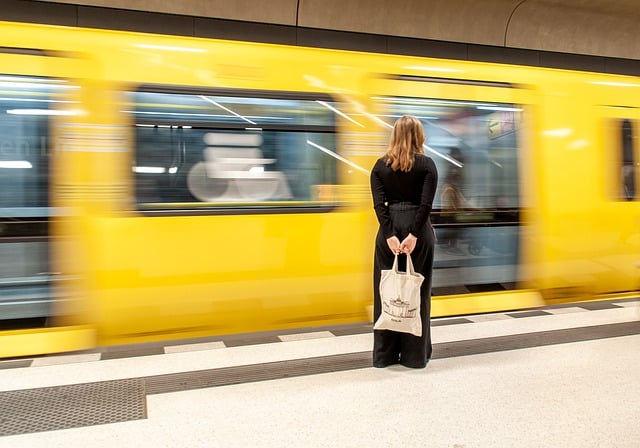Understanding the Cycle of Change: The Transformative Journey
Understanding the Cycle of Change
When it comes to making a change to a habit, then understanding the cycle of change is vital. In being able to understand each stage of the cycle, we’re better able to determine what might need to happen to get to the next stage.
Imagine yourself on a train journey. Every station you halt at symbolizes a stage in the ‘cycle of change,’ your personal transformation track. However, unlike a typical train journey, there’s no concrete beginning or end – your train moves in a circular track, representing the nature of change – a cycle, not a straight path.
Embarking on the Journey: Precontemplation
Picture this: you’re sitting in your train, perhaps staring out the window, unaware that you’re even on a journey. This is the stage known as precontemplation, the first stop in the cycle of change. In this stage, awareness about the need for change isn’t present. Analogously, your train hasn’t quite left the station yet. It’s still waiting, humming gently as it prepares for the transformative journey.
Embedded in this stage is a sense of denial, which shields us from accepting our destructive habits or addiction. Just like you might not notice some minor quirks about your train until they cause discomfort, you might not recognize the negative impact of your habits until they start causing tangible problems.
Awakening: Contemplation
Suddenly, the whistle blows. The train lurches forward, slowly picking up speed, and you realize the journey has started. This is the contemplation stage, where awareness about the need for change begins to dawn. You’re now aware of your addiction, recognizing its harm, but are still hesitant to make a change. It’s like your train being in motion but not yet at full speed.
In this phase, it’s not uncommon for conflicting emotions to arise. Just as a person might feel both excitement and apprehension about the journey ahead, contemplating change can bring a mix of fear, hope, and ambivalence.
Preparing for the Ride: Preparation
Your train is now gaining speed, smoothly moving along the tracks. This symbolizes the preparation stage. Here, you’ve decided to change, gathering your resources and tools for the journey ahead. It’s akin to the feeling when you see your destination approaching in the distance, and you start gathering your belongings, readying yourself to disembark.
During this phase, your intention towards change solidifies, you start formulating a plan, seeking guidance, or setting achievable goals. It’s like checking the train schedule, preparing for the next station, and planning the next steps of your journey.
The Journey Unfolds: Action
The train has now reached full speed, symbolizing the action phase. This is where you actively implement the strategies and plans made during the preparation stage, akin to stepping off the train and beginning to explore your new destination.
In this phase, you engage with your plan, resisting old habits and cultivating new, healthier ones. It’s like taking that first confident stride towards your destination, away from the station, the familiarity of the train behind you.
Maintaining the Course: Maintenance
Your train journey isn’t over just because you’ve reached one station. It continues, just as the cycle of change extends beyond the action phase to maintenance. Here, you work to sustain the change made, a task often more challenging than initiating it. It’s like maintaining your sense of direction in a new city, steadfast in your path even if you might feel the pull of the familiar train station.
This stage isn’t about making further changes, but about consolidating the gains from the action stage, and preventing a return to the old, unhealthy habits. It’s akin to building a new life in your destination, creating a new home away from home.
The Roundabout: Relapse
At times, despite our best efforts, we might find ourselves back on the train, heading back to our old station – the relapse phase. This phase can be disheartening, but it’s crucial to remember that it’s a common and natural part of the journey. It’s like having to return to your old station because you left something important behind.
Relapses provide learning opportunities, giving insights into what worked and what didn’t. They are not roadblocks, but rather stepping stones, guiding us towards a more effective and personalized approach towards change.
Understanding the Cycle of Change for a Better Life
So, there you have it. Your transformation journey, the cycle of change, unfolding in parallel to a train ride. Each station a new stage, each journey a new opportunity to grow. Be patient with yourself and remember, it’s a cycle, a process, not a destination. And as the journey continues, remember to enjoy the ride.
Release Hypnosis Melbourne Hypnotherapy
Since 2015, Lawrence Akers has been working under the name Release Hypnosis offering Hypnotherapy and ACT based work to the people of Melbourne or an online service. Based on St Kilda Rd, Release Hypnosis is an easy and convenient location to get to and accessible by the ANZAC station train and tram stop. Release Hypnosis can help with a wide range of presenting issues, and I offer a free 30 minute no obligation discovery call for those who are unsure if hypnotherapy is the right way forward for them.
Book Your FREE 30 Minute Consultation With Release Hypnosis NOW!
You may also like to read:
Discovering Purpose and Values: A Path to Mental Well-being
Can’t Visualise in Hypnosis? Here’s What You Can Do Instead.
Dealing with Financial Stress and Crisis: Finding Peace Amid Turbulence
What Is The Success Rate of Hypnosis?
Release Hypnosis Melbourne Hypnotherapy is accessible for people in: Abbotsford, Armadale, Albert Park, Balwyn, Bentleigh, Black Rock, Box Hill, Brighton, Brunswick, Bulleen, Bundoora, Camberwell, Canterbury, Carnegie, Caulfield, Chadstone, Cheltenham, Clayton, Coburg, Collingwood, Deer Park, Doncaster, Elsternwick, Eltham, Elwood, Epping, Essendon, Fairfield, Fitzroy, Footscray, Glen Iris, Glen Waverley, Glenhuntly, Greensborough, Hampton, Hawthorn, Heidelberg, Highet, Ivanhoe, Kew, Kooyong, Lalor, Laverton, Lower, Plenty, Macleod, Malvern, Middle Park, Moonee Ponds, Melbourne, Moorabbin, Mount Waverley, Murrumbeena, Northcote, Oakleigh, Ormond, Parkville, Pascoe Vale, Port Melbourne, Prahran, Preston, Richmond, Rosana, Sandringham, South Yarra, South Melbourne, Spotswood, St Albans, St Kilda, Surrey Hills, Templestowe, Thornbury, Toorak, Tullamarine, Williamstown, Yarraville, North Melbourne, Windsor, East Melbourne, Melbourne, Melbourne CBD, Melbourne 3004








